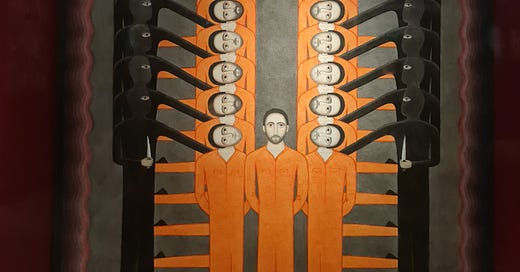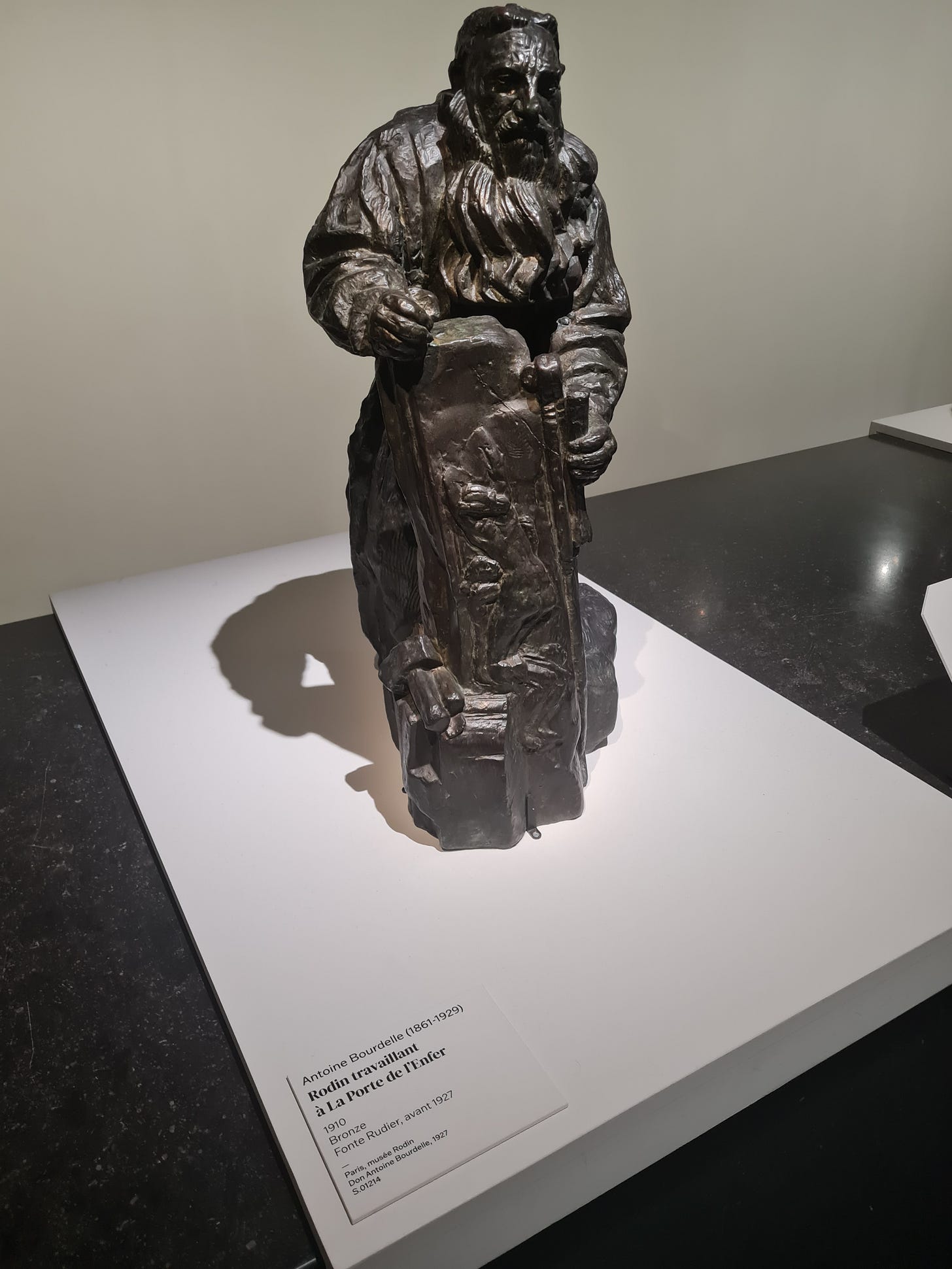Fiction Is Less Sleazy Than Essays
But here I am writing an essay about it, because the Internet always encourages the worst possible thing
Here I am, writing another fucking essay on Substack.
Lately I have felt disinclined to do so, because I have been too happy with my storytelling output to pause, and Substack is not the place for fictional creativity; as Robert Peter Kearns put it, the readers ain’t here.
I’ve gone anonymous and found a medium at last which is the perfect fit for someone of my unfortunate socioeconomic cataclysm of barriers. The contrast between the pleasure of that medium and the greasy feel of lowest-common-denominator Internet opinion-sharin’ has clarified something for me:
Ok, caveat, almost all of modern fiction isn’t worthy of the name and might as well have been done by AI.
BUT! Done right, fiction is a far superior medium to the essay for conveying thought in search of truth.
Yeah, I’m writing an essay about it, because back when I wrote fiction on here, nobody could even find it, because few of us, for all our happy talk about being “authors,” click on each other’s fiction.
And I get it: It’s generally a waste of your time. I know this because I actually TRIED. I’ve seen what the Tik-Tok refugee and human cholesterol publish on here. It’s generally as bad as the shit the nepo babies are printing in traditional publishing; everyone who is visible is in on the responsibility for the bad name our work has amongst the general public.
But I took a break from storytelling and tried to finish an essay this morning—just to, ya know, keep my information footprint festering or whatever.
It was an essay I had abandoned when I could finally afford the equipment for my storytelling; when I came up with the essay concept, it felt sincere enough.
But coming at it after a period of working with characters and dialogue, the single, authoritative, authorial voice immediately felt greasy. The contrast between contemplating an essay for algorithmic consumption and the mental-health benefits I have enjoyed from concentrating on fiction lately shocked me into putting my finger on why I have never enjoyed essay-writing:
Because nobody is a single perspective. Anyone who is sure they’re right is full of shit. Shit is boring. And greasy. And smelly.
And depending on the breadth of one’s perspective, trying to pretend the essay form creates no distortion seems proportionately crazy.
When you write a straight-up essay, if you’re a reasonably well-read person, you can usually think of at least one reasonably valid counter-argument to any statement you might write.
As you go through structuring your essay, if you’re honest, the counter-arguments to your own point of view pile up and up with every conventionally-structured, I-laerned-this-in-college, claim-proof-evidence paragraph. “I could have made a mistake at any of these turns, and look at the weird place I ended up.” It’s hard not to see an ever-increasing pyramid of different, possibly more intuitive ways your argument could have gone.
Maybe this is just because the internet is forcing me to think like AI—in terms of probability and logic trees, rather than in terms of organic though.
But c’mon, I’ve probably spent fewer than five hours total in my life voluntarily engaging with AI, although… unwittingly interacting with AI? Jeez, who knows? Most humans seem indistinuguishable from AIs half the time anyway. I guess you could ask whether we’re humanizing AI, or whether it’s dehumanizing us…
See what I mean? This uni-linear logic can drive you right off a cliff, till you inevitably wind up doing a character based on the logic tree to which the essay form forces you to commit.
In fiction? I could add another character here, doing something normal and human, to express a sincere but disconnected doubt, without having to run to the pass to head off the triumphant reader, who is already typing: “hey but in paragraph 22b, you said…”
When I write fiction, every time I find myself thinking some logic tree of bullshit, I can correct myself.
In an essay, such untargeted precision would be immediately recognized as an unforced error. I myself wouldn’t read this hypothetical genre of honest essay. Because it would be too easy to hide lies in it. (Also, it would be infinitely long.)
But in fiction? Untargeted precision is the raison d’être.
I mean, I can see how this approach can get formulaic fast—for instance, if the writer is some kind of political nut who has some conclusion they absolutely have to get to or else they’ll feel like they’ve lost at being smart. In those hands, the form of thoughtful fiction is hijacked into essay-writing with puppets and a couple of devil’s advocates, complete with horns and cape.
But if you want to figure something out, find out what the hell is bothering you, or get close, without committing to a preconceived finish line… well, that’s how books like Jane Eyre get written.
Nobody tells the truth like the voices in your head.
So long as there’s more than one of them.
But if people prefer to read essays with puppets,
I guess that’s that, then.






"Tik-Tok refugee and human cholesterol publish" Best quote.... more more more...
A.i is the death of Literacy and the human scrolling echo chamber.
Like most things in modernity: Everyone looking for relativity, whilst foregoing conversation in the persuit to hear there own voice. Look at how homogenised every Video, image and written spectacle is.
Like someone once said...
If you do not become the algo, the rewards are back page disappointment watching the shit floating in vertical format on the front page platforms of the visual sewerage .
Mostly I agree with this, though I would point out that a well-written essay can contain more than one perspective. The secret, or at least one of them, is to ignore all of the bullshit they teach you in school and write an argument that is purposefully unsatisfactory. You can do lots of tricky stuff with essays, like cite examples that don't support your argument and contradict yourself. One can create tension between what one is saying and what one is arguing. Really great essays usually say more than what's written in the lines.
Not prose, but Antony's funeral oration exemplifies the spirit of what I'm talking about, though one can, of course, be more subtle.
Come I to speak in Caesar’s funeral.
He was my friend, faithful and just to me:
But Brutus says he was ambitious;
And Brutus is an honourable man.